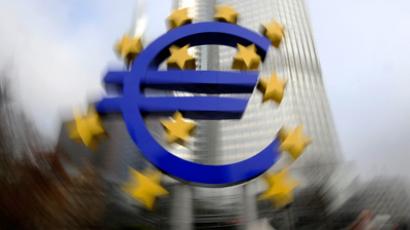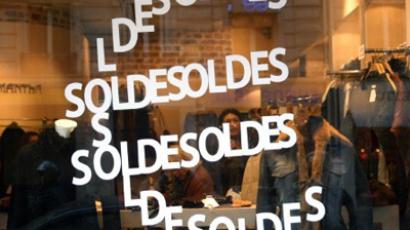Franco-German axis: Joint push for Euro dominance?
The New Year has failed to sweep away old problems dogging the euro, with France and Germany going back to work to hammer out a rescue plan. Angela Merkel and Nicolas Sarkozy have met in Berlin in Monday for their first talks of 2012.
They have three months to implement fiscal discipline rules agreed in December, and some worry that Germany, above all, sees this as an opportunity to increase political clout.Billions of Euros have been injected into the Greek economy, while its population has suffered shot after shot of austerity measures.In most cases, that has meant wages cut and taxes raised. The credit crisis has seen Greece’s elected PM swept into the political gutter and replaced by an unelected technocrat who just happens to be a former Vice President of the European Central Bank.“My friend, the famous composer of Greece Mikis Theodorakis, compares it with the times before fascism. And what they are doing is destroying democracy in Greece,” Dieter Dehm from the German Left Party told RT. The one and only goal of the new prime minister, Lucas Papademos, is to prevent Greece from going under and taking others with it.A similar tactic was recently used on the third largest of the eurozone's economies, Italy, after Silvio Berlusconi resigned from power and a new prime minister was also appointed.“Switching governments is an old show. The government that left had no chance to act much different from the one that is installed now. People are pacified a little by a new face,” government and business consultant Christoph R. Hoerstel explained to RT. Meanwhile, the EU’s key players, Germany and France, are meeting again to seek ways to weld cracks in the eurozone.With Germany having already invested billions in saving the euro, it's no surprise that it wants more control over the rest of the pack.Which is why Berlin and Paris are pushing to build the so-called “fiscal compact” meant to tighten the reigns over sovereign budgets.But it's an idea that is not going down well on Germany's streets…“There is a threat that Germany can gain positions and influence in the EU. And it may not really have any right to be doing this,” one Frankfurter told RT. “Over this money Germany gives to other governments it gets more powerful, and I think this is bad, it is a danger,” says the other. The so-called “Robin Hood Tax” is another proposed measure.It would charge the EU's financial institutions for every money move they make, with the aim of stabilizing the markets.However, with more gloomy economic news over the eurozone's joblessness and failing retail sales, some analysts warn that if introduced, the new tax may only make struggling countries even more dependent on France and Germany's money.There's no doubt Germany remains the industrial and economic powerhouse of the EU. And with the sky over the eurozone darkening, the signs are that this economic strength is now being used to buy political influence as well.














